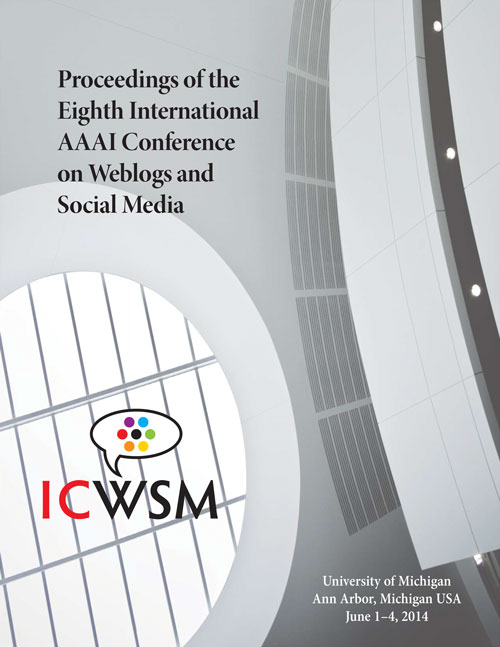Event Detection via Communication Pattern Analysis
DOI:
https://doi.org/10.1609/icwsm.v8i1.14536Abstract
Social media applications such as Twitter provide a powerful medium through which users can communicate their observations with friends and with the world at large. We have witnessed live reporting of many events, from soccer games in Johannesburg to revolutions in Cairo and Tunis, and these reports have in many ways rivaled the content provided by the official media. Tapping into this valuable resource is a challenge, due to the heterogeneity and noise inherent in realtime text, diversity of languages, and fast-evolving linguistic norms. In this paper we seek to analyze a tweet stream to automatically discover points in time when an important event happens, and to classify such events based on the type of the sentiments they evoke, using only non-textual features of the tweeting pattern. This results not only in a robust way of analyzing tweet streams independent of the languages used; it also provides insights about how users behave on social media websites. For example, we observe that users often react to an exciting external event by decreasing the volume of communication with other users. We explain this effect through a model of how users switch between producing information or sentiments and sharing others’ news or sentiments. We develop and evaluate our models and algorithms using several Twitter data sets, focusing in particular on the tweets sent during the soccer World Cup of 2010. This data set has the feature that the underlying ground truth is welldefined and known whereby goals serve as events.

